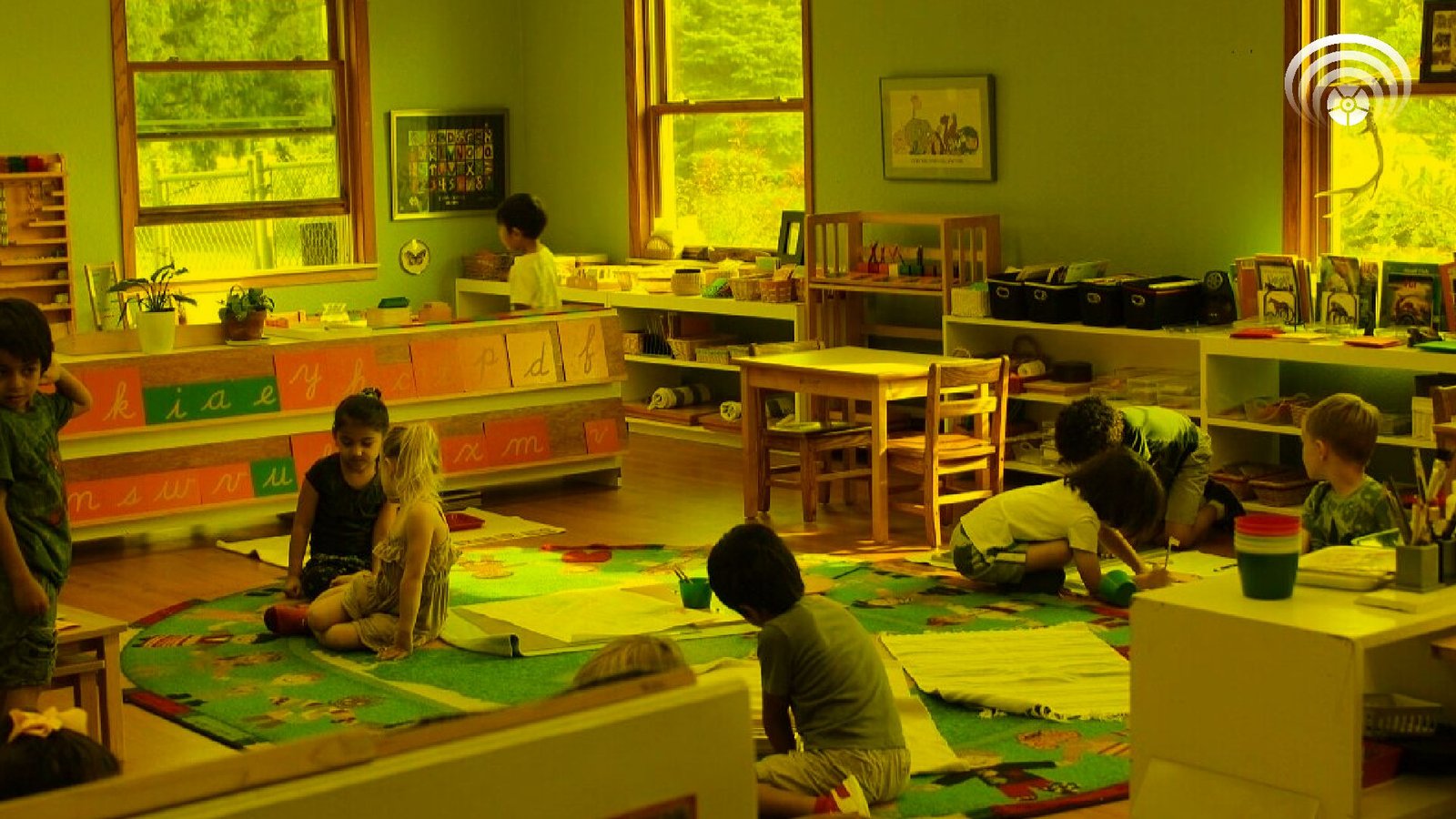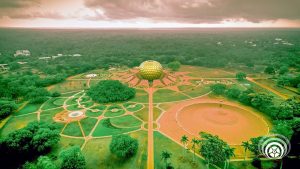
Maria Montessori, renowned for her pioneering work in education, left an indelible mark on the world through her innovative pedagogy. While her contributions are celebrated globally, her time in India holds a special significance. This period not only saw the development and refinement of her Montessori method but also marked an intriguing connection to the concept of integral education, deeply rooted in Indian spiritual traditions. In this article, we delve into the fascinating journey of Maria Montessori in India and the convergence of her educational principles with the teachings of Sri Aurobindo.
Internment in India
Montessori’s journey in India began during tumultuous times. In 1939, she arrived in Madras to give a training course at the Theosophical Society. Her initial plan was to conduct a series of lectures at various universities and then return to Europe. However, the outbreak of World War II, and Italy’s alliance with Germany, led to her internment in India. Remarkably, only her son, Mario Montessori, was interned, while she was confined to the Theosophical Society compound.
Despite these challenging circumstances, the Montessoris remained in Madras and Kodaikanal until 1946, making the most of their situation by engaging in lectures and courses throughout the country.
Elementary Material, Cosmic Education, and Lessons on Early Childhood
During her stay in India, Maria Montessori and her son Mario continued to refine her educational philosophy. One of the significant developments was the introduction of “cosmic education,” an approach aimed at children aged from six to twelve years, emphasizing the interconnectedness of all elements in the natural world. Children were encouraged to work directly with plants and animals in their natural environments, with the Montessoris creating a range of educational materials and resources, including botany, zoology, and geography.
Between 1942 and 1944, these elements were incorporated into an advanced course for children between the ages of six and twelve. This work culminated in two influential books: “Education for a New World” and “To Educate the Human Potential.”
Infant Studies and Legacy
While in India, Montessori’s curiosity led her to study infancy. In 1944, she delivered a series of 30 lectures on the first three years of a child’s life and established a government-recognized training course in Sri Lanka. These lectures were subsequently compiled into the book “What You Should Know About Your Child.”
In 1944, the Montessoris were granted some freedom of movement, enabling them to travel to Sri Lanka and attend the first All India Montessori Conference in Jaipur. Following the end of the war in 1946, Maria Montessori and her family returned to Europe.
Final Years and International Impact
In 1946, at the age of 76, Maria Montessori returned to Amsterdam, launching a period of extensive travel across Europe and India. In 1947, she conducted a training course in London and established the Montessori Centre, which later evolved into the St. Nicholas Training Centre. During the same year, she returned to Italy to re-establish the Opera Nazionale Montessori and provided two more training courses.
Notably, her time in India influenced her understanding of child development. During the courses she conducted in India, Montessori introduced the concept of the Four Planes of Development, charting the developmental stages of a child from birth onward. In 1948, “Il Metodo della Pedagogia Scientifica applicato all’educazione infantile nelle Case dei Bambini” was revised and published in English as “The Discovery of the Child.” Her work in India also led to the foundation of the Pakistan Montessori Association in 1949.
Montessori’s Connection to Integral Education
One of the most intriguing aspects of Maria Montessori’s time in India was her connection to integral education, which was deeply rooted in Indian spiritual traditions, particularly the teachings of Sri Aurobindo.
Montessori’s journey in India coincided with the year 1943, the same year the Ashram School opened in Pondicherry. During this time, she sent a copy of her book, “The Secret of Childhood,” to Sri Aurobindo, accompanied by a message expressing her devotion and gratitude. Additionally, she addressed a letter to the students of the Ashram School, which was read out to them, imparting a message that resonated with the principles of integral education.
In her letter, Montessori encouraged the students to embrace the spiritual world, emphasizing that their world was one of the spirit. She urged them to grow in this new realm of freedom that was being constructed for them and to unleash their divine potential, as this would be their way of offering themselves to God and His will.
Her words echoed the core principles of integral education, which aims to nurture the physical, emotional, mental, and spiritual aspects of a child’s development, recognizing the interconnectedness of all these dimensions. Montessori’s philosophy of fostering independence and self-discovery in children aligns seamlessly with the holistic approach of integral education.
In conclusion, Maria Montessori’s sojourn in India was not only a significant chapter in her life but also a time when her educational philosophy converged with the profound spiritual teachings of integral education, as expounded by Sri Aurobindo. Her work in India, particularly her emphasis on cosmic education and child development, has had a lasting impact on the educational landscape in the country. Montessori’s connection to integral education in India serves as a testament to the universal appeal and adaptability of her educational principles.





